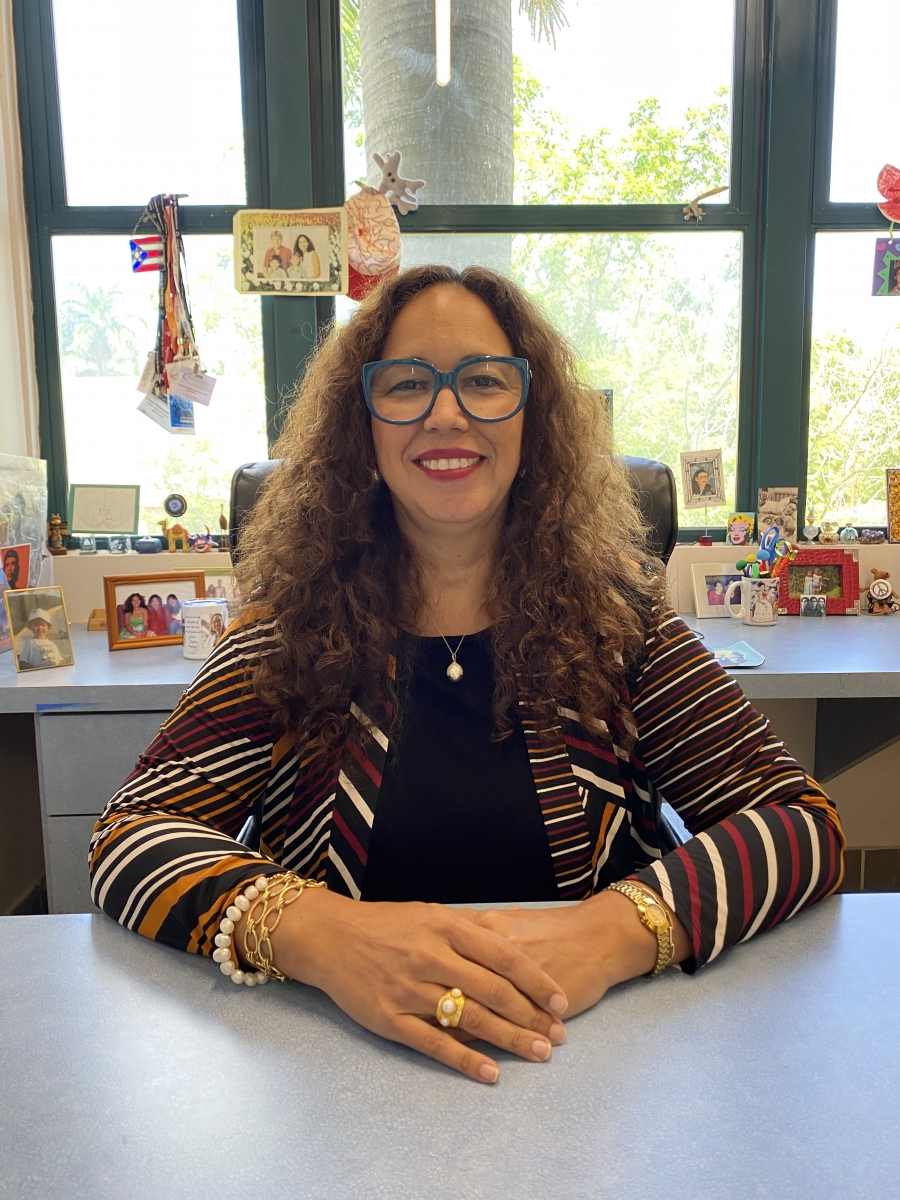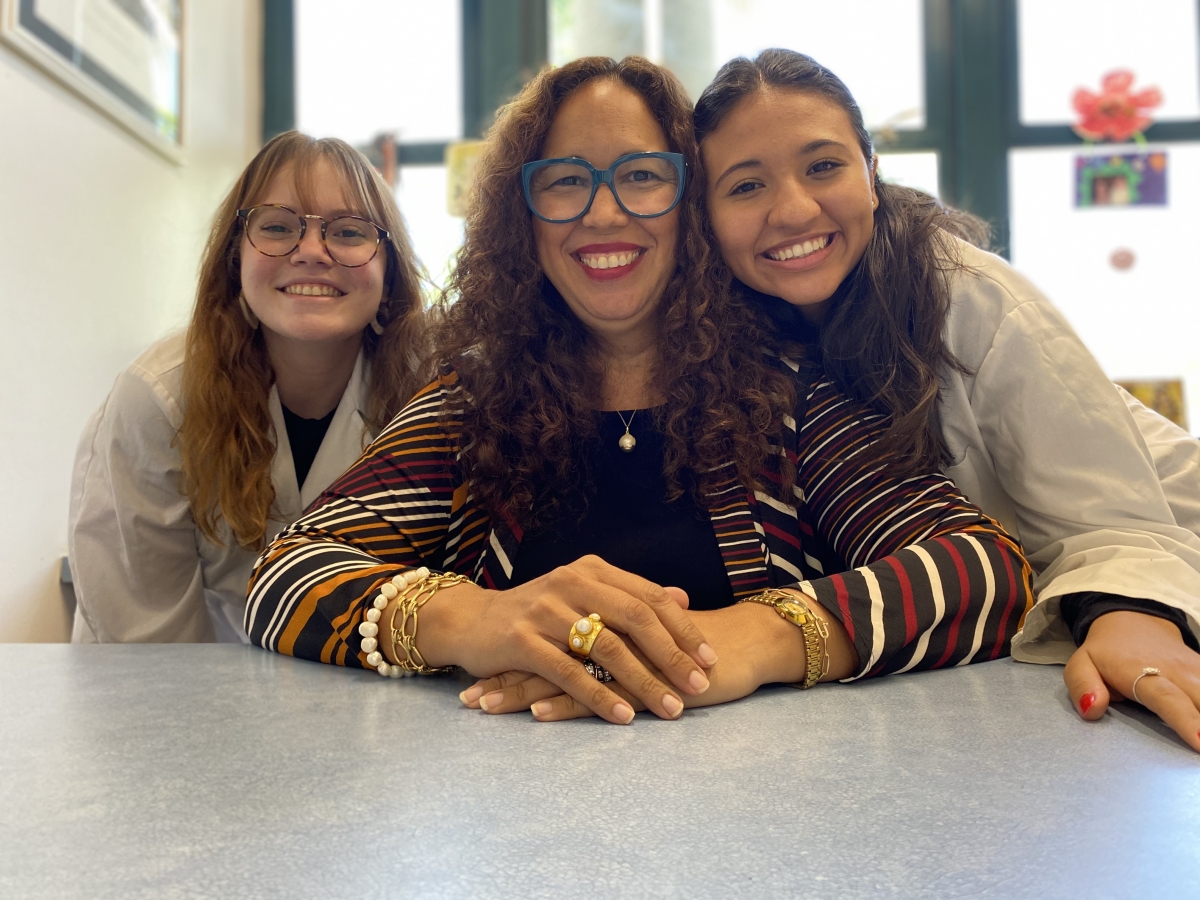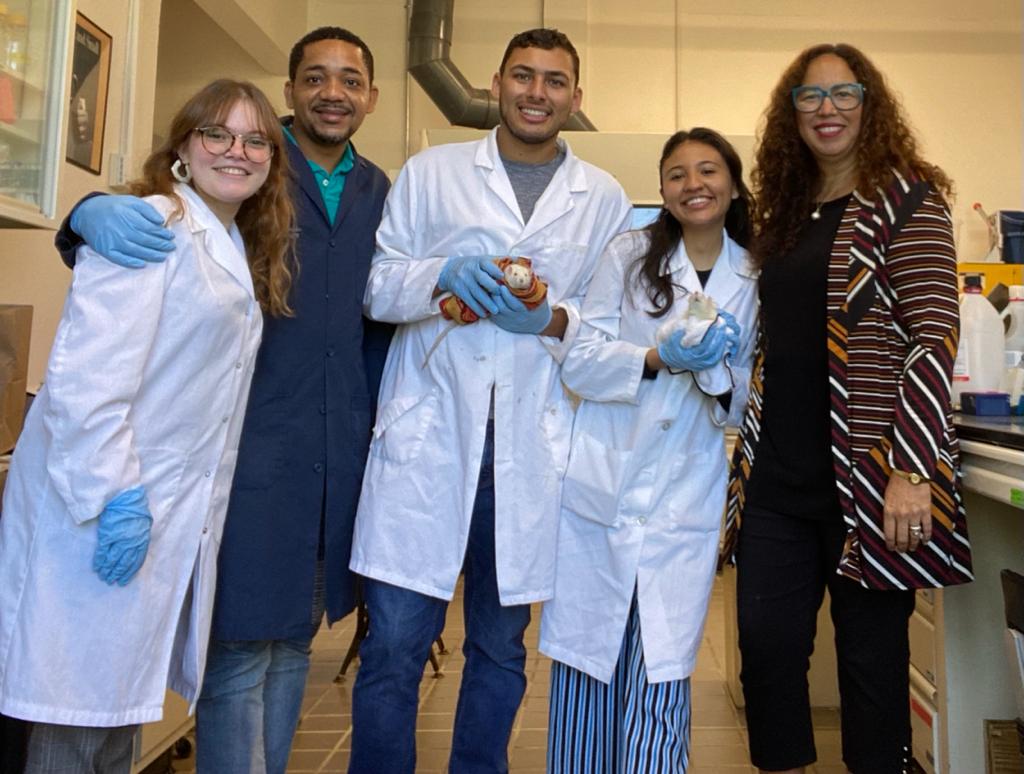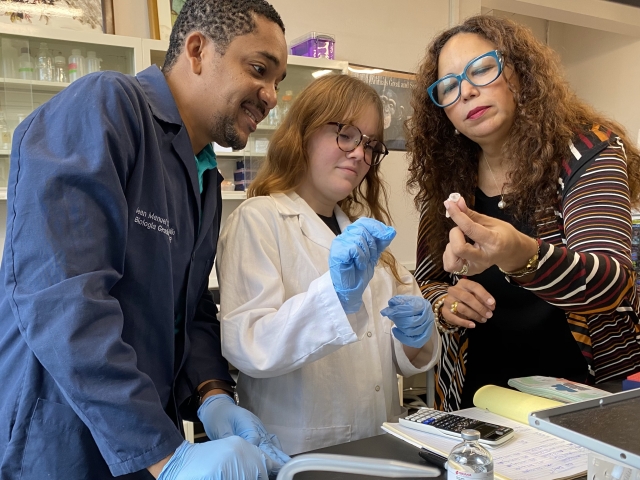Carmen Maldonado-Vlaar: Forging paths for Latinx science
Submitted by Charlene Nicole Rivera Bonet on
“What would be ideal is for gender and race equality to exist in science, for everyone to be represented equally.” That is the biggest goal of Puerto Rican scientist, Dr. Carmen Maldonado-Vlaar, who is a distinguished researcher and mentor in the field of neuroscience. In addition to contributing new knowledge to the field on the mechanisms of addiction, she has forged paths for the new generation of Latinx scientists.
It all started with the science fair
Her interest in science started as a kid. “I have always been an inquisitive person,” mentioned Dr. Maldonado-Vlaar, who found in science a way to feed her curiosity. In school, she had teachers that identified that motivation and were key in her scientific development. For her first science fair in middle school, Maldonado-Vlaar studied oxygen levels in different locations of the Río Grande de Loíza. This led her to win first place on a regional competition of science fairs across Puerto Rico. “That recognition made me say, ‘this is what I like,’” – she said, smiling
Dr. Maldonado-Vlaar obtained a double bachelor’s in biology and psychology from the University of Puerto Rico at Río Piedras (UPR-RP). There, she discovered the disciplinary world of neuroscience and got immersed into research in the laboratory of Dr. José Gilberto Ortiz at the Department of Pharmacology at the UPR Medical Sciences Campus studying the neurobiological basis of epilepsy. “I have always been interested in understanding the basis of human behavior, which leads me to neuroscience,” she expressed.
After completing her bachelors’, accompanied by a suitcase, a case of books and her boom box, Maldonado-Vlaar moved to Boston for a gap year and worked as a technician in a behavioral neuroscience lab at Boston University’s School of Medicine. A year later, she started her graduate studies in psychology at Northeastern University, which she finished at the University of Wisconsin-Madison (UW-M).
Maldonado-Vlaar was the first Latina in her graduate program, which came with a series of unique challenges and responsibilities. It was through this experience that she learned she represented not only Carmen, but also her family, gender, race and background. She realized that she had the opportunity to open doors for people like her.

In spite of the difficulties that came with living far from home and among people that did not share her language, culture and background, Maldonado-Vlaar had good mentors that inspired her to become who she is today. It was Dr. Anne Kelley, at Northeastern and then UW-M, who through her example inspired Maldonado-Vlaar to be a mentor of excellence. “The same thing she did for me, I will do for my students,” said Maldonado-Vlaar, who works as a mentor to increase the representation of Latinxs in neuroscience.
During her doctorate, Maldonado-Vlaar studied the neurobiology of addiction, which she continued through her post doctorate at the Scripps Institute in La Jolla, California. From there, she returned to Puerto Rico. “I always knew I wanted to come back,” she commented. Back then, there were only a handful of laboratories that investigated behavior, and her goal was to further develop the research field of behavioral neuroscience in the island.
Maldonado-Vlaar returned to her alma mater, the UPR-RP, and started her own lab to understand possible pharmacological interventions to help with addiction treatment. The focus of her studies is a holistic one that integrates molecular, anatomical and behavioral techniques. Until a few years ago, she studied the mechanisms of cocaine addiction, and the processes related to drug craving.
Like many aspects of Puerto Rican’s daily lives, science was also affected by the passing of hurricane María in 2017, which limited access to certain resources. This led Dr. Maldonado-Vlaar to reinvent herself. Currently, her research focuses on the ability of the hormone oxytocin to reduce anxiety related to cocaine addiction. Her lab found that oxytocin has the ability to reduce cocaine craving and eliminate the anxiety related to cravings induced by environmental stimuli.
Opening doors through mentorship
Most research ideas pursued in Maldonado-Vlaar’s lab come from her students, who develop these projects with her guidance. Over 100 students have been part of her lab through her 24 years of career at the UPR-RP. All of them Latinxs, 70% of them women.
Maldonado-Vlaar has devoted herself to, not only mentoring students in her lab, but also participating and leading programs that promote access for women and minorities to careers in neuroscience. According to the National Science Foundation (NSF), Hispanics/Latinxs make up only 6% of science jobs, and only 2% are Hispanic/Latinx women.
To improve these statistics, Dr. Maldonado-Vlaar takes part in programs such as the Training Advisory Committee for the Diversity in Neuroscience Program (DPN) of the American Psychological Association and the Summer Program in Neuroscience, Ethics, and Survival (SPINES) at the Marine Biology Laboratory (MBL). At her institution, she co-leads the undergraduate training program NeuroID, which promotes the development of future Puerto Rican neuroscientists, and leads the Center for Interdisciplinary Research and Undergraduate Learning (CRIIAS).

These efforts have not gone unnoticed. In October of 2020, Dr. Maldonado-Vlaar was recognized for her successful efforts in mentoring women in neuroscience with the Bernice Grafstein award, given by the Society for Neuroscience (SfN). Dr. Maldonado-Vlaar is the first Puerto Rican scientist to receive this prestigious prize. “It is good to receive this award, and to the level that it was given,” expressed Maldonado-Vlaar, affirming that the greatest satisfaction is to see her students grow and accomplish their goals. “If my contributions are to be an example of how to be successful in occasionally hostile scenarios, to be successful in spite of difficulties, it is a big achievement and it makes me proud and happy because I know they will continue this once I am gone, they keep carrying the torch.”
For Dr. Maldonado-Vlaar, her role as a mentor has been one of affirmation and coaching. Of identifying a student’s potential, walking with them through their growth, and educating while allowing the student to think for themselves. For her, as a mentor you win through your student’s success.
Through her efforts in research and mentorship, Dr. Maldonado-Vlaar seeks to promote in science an environment in which everyone is welcomed and has a seat at the table. She has, not only contributed new research topics and knowledge for the development of addiction treatments, but also helped Latinx scientists, women in particular, to develop their full potential and represent us in the field of neuroscience. “We, Puerto Rican women in science, have a great responsibility with future generations since the legacy of change and success we leave will make way for many more.”









